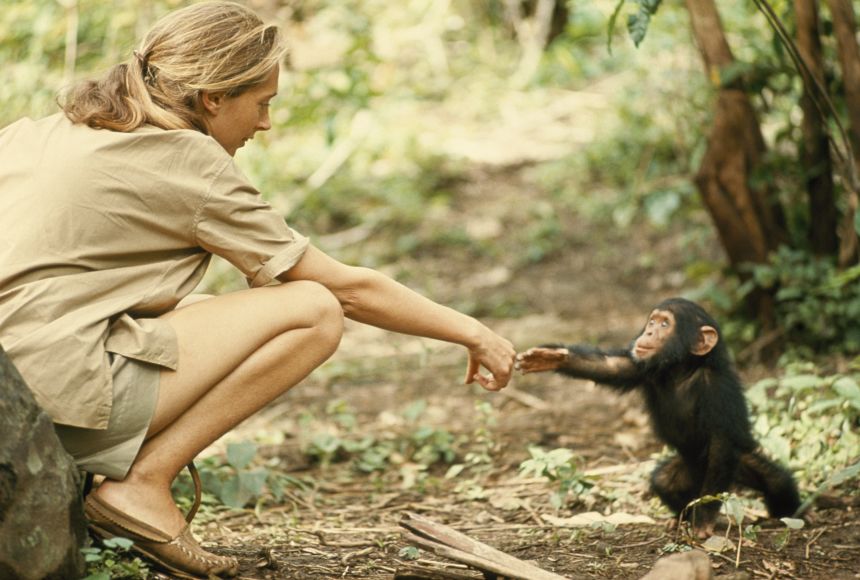Are you passionate about wildlife conservation and dreaming of making a real impact? Volunteering with the Jane Goodall Institute (JGI) is a great way to support endangered species, protect natural habitats, and inspire the next generation.
Whether you love working with animals, educating children, or using your communication skills for a cause, there’s a place for you in the JGI volunteer community.
What Kind of Volunteer Work Can You Do?
Depending on your location and interests, you can get involved in:
🦍 Chimpanzee care at sanctuaries like Chimp Eden in South Africa
🌱 Environmental education through the global Roots & Shoots program
💻 Communications and media support (writing, social media, design)
🎉 Fundraising and event planning
🌍 Community outreach and tree planting initiatives
Some opportunities are hands-on, while others can be done remotely.
A Unique Volunteer Experience
Joining the Jane Goodall Institute as a volunteer means becoming part of a movement dedicated to wildlife protection, education, and sustainable development. Whether you’re helping children connect with nature or supporting the daily care of rescued chimpanzees in a chimpanzee sanctuary, every action contributes to long-term impact. It’s a great opportunity to gain experience in wildlife conservation, work with inspiring teams, and be part of meaningful projects that truly make a difference.
How to Get Started
1. Explore JGI’s local or national branches
The Jane Goodall Institute is global. Each national branch or program may have different volunteer opportunities, requirements, and focus areas (education, wildlife, advocacy, etc.).
-
For example, JGI Belgium offers multiple volunteer teams (Tree Planting, Roots & Shoots, Communications, Fundraising, Advocacy) and holds “welcome calls” every two months to onboard new volunteers.
-
Jane Goodall Institute South Africa (Chimp Eden) accepts local and international volunteers to help with chimpanzee care, behavioural observations, enclosure maintenance, enrichment, diet preparation, etc.
-
JGI Singapore lists volunteer opportunities in events, operations, and filmmaking for projects in Southeast Asia.
So first, identify which JGI office or program is closest to you or aligned with your interests.
2. Assess your skills, interests, and time commitment
Before applying, consider:
-
What areas you’d like to volunteer in (education, communications, wildlife, advocacy, fundraising)
-
What skills you can bring (writing, translation, social media, research, teaching, event planning)
-
How much time you can commit (hours per week, months, seasonal)
-
Whether you are open to remote/online volunteering or prefer in‑person field work
Many JGI branches are flexible: for instance, JGI Belgium has volunteer roles requiring 1 hour/week or 1 event/month, while others are more hands‑on.
3. Apply or register as a volunteer
Once you find a role that suits you:
-
Fill out the volunteer registration or application form (often available online on the JGI branch’s “Become a Volunteer” page)
-
Provide personal details, skills, availability, and a short motivation
-
Some branches host a welcome call or orientation meeting to explain responsibilities, structure, and ask questions.
-
After the call or orientation, you can decide whether to formally commit
4. Undergo orientation, training, and onboarding
Once accepted:
-
You may receive materials, guides, or training relevant to your role
-
You’ll join meetings (in many cases monthly or quarterly) to coordinate with your team and align on goals
-
For field roles (wildlife, research, education), you might be briefed on protocols, safety, ethics, and how to support habitat or animal care
5. Carry out your volunteer responsibilities
Your tasks will vary depending on your team:
-
Education / Roots & Shoots: designing workshops, liaising with schools, delivering environmental education sessions
-
Communications: writing articles, managing social media, creating visuals or video content
-
Fundraising & Support: organizing campaigns, donor outreach, administrative support
-
Wildlife / Conservation: assisting with habitat restoration, monitoring, rescue operations (depending on location)
Make sure to stay engaged, follow guidelines, attend team meetings, and communicate proactively with coordinators.
6. Reflect, learn, and grow
Volunteering is a two‑way experience. Over time:
-
Reflect on lessons learned, challenges, and your own growth
-
Seek feedback from coordinators and colleagues
-
Consider advancing your volunteer role, mentoring newcomers, or deeper involvement
Best practices & tips for a meaningful volunteering experience
-
Be realistic and honest about your availability and capacity
-
Communicate clearly — stay in touch with coordinators, update them on delays or issues
-
Respect protocols and ethics, especially for wildlife or sensitive work
-
Be proactive — look for small ways to help beyond your core role
-
Be patient and humble — conservation change often happens slowly
-
Learn continuously — read, ask, train
Also watch out for “voluntourism” traps: some organizations charge high fees but provide little meaningful contribution. Always ask: How will my time benefit the project?
Why It Matters
By volunteering with JGI, you join a global network of people working toward a better future for animals, people, and the environment. It’s also a unique opportunity to grow your skills and live your values.
“What you do makes a difference, and you have to decide what kind of difference you want to make.”
— Dr. Jane Goodall


Leave A Comment